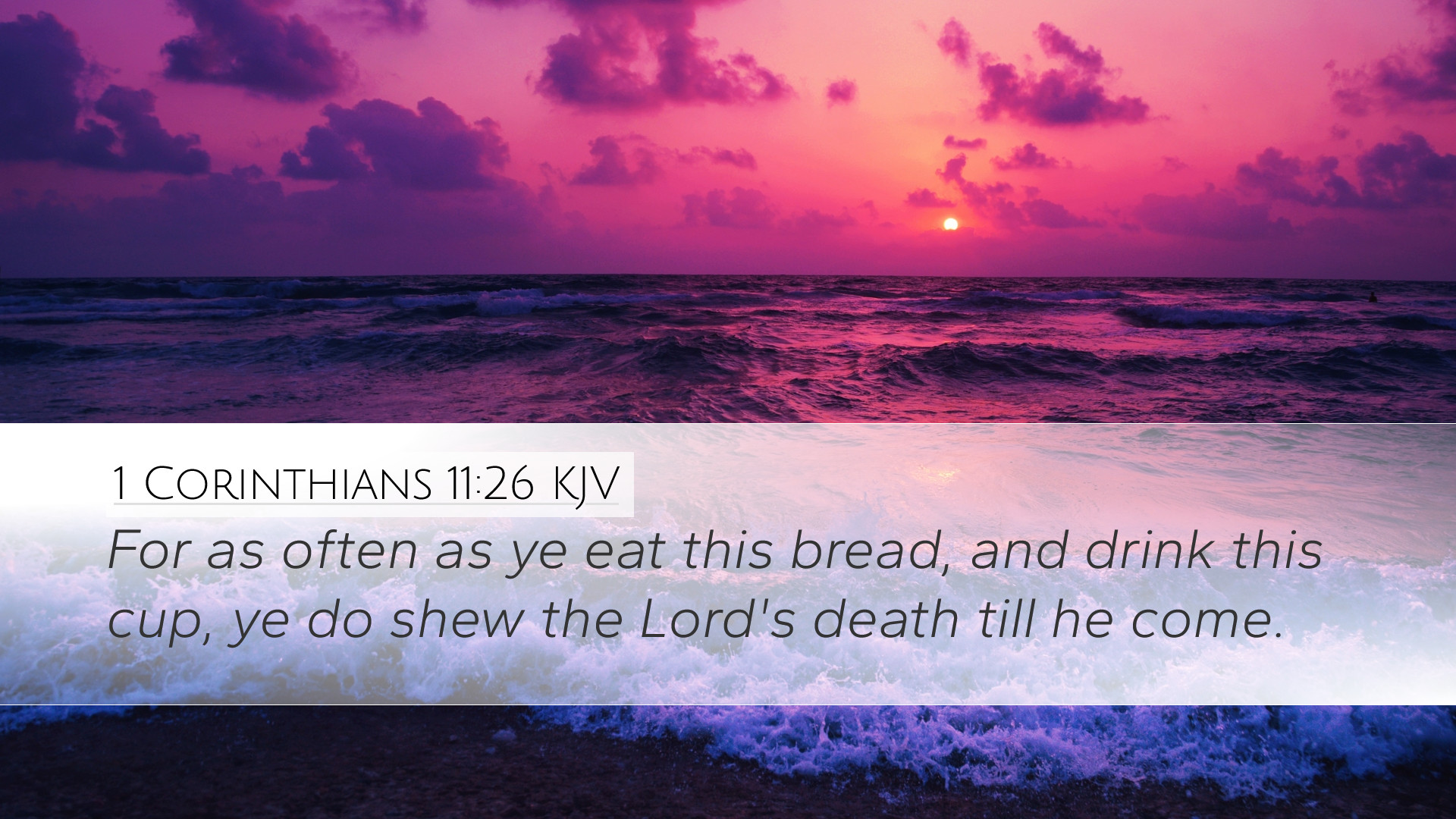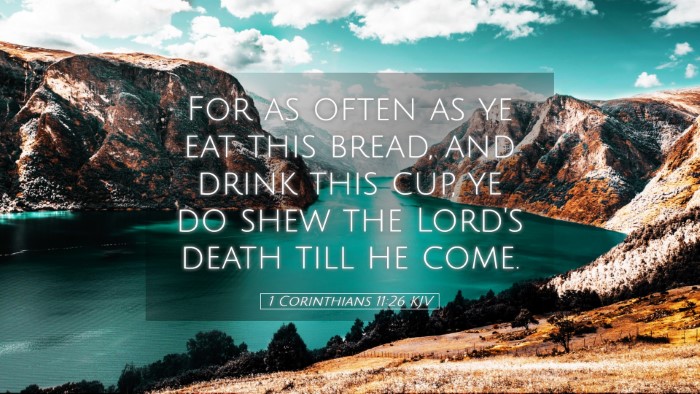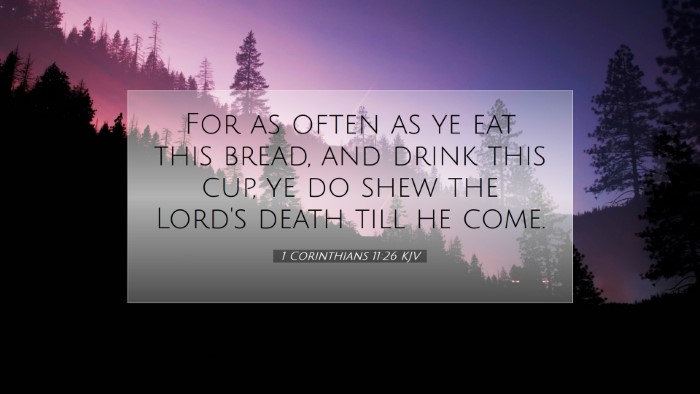1 Corinthians 11:26 Commentary
Verse: "For as often as you eat this bread, and drink this cup, you do show the Lord’s death till he come." (1 Corinthians 11:26)
Overview
This profound verse encapsulates the essence of the Lord’s Supper, highlighting both a remembrance and a proclamation of Christ’s sacrificial death. It emphasizes the importance of the Eucharist in Christian worship and the theological significance behind these sacred acts.
Exegesis and Theological Insights
Matthew Henry: In his commentary, Henry underscores that the act of partaking in the bread and cup is not merely ritualistic, but it serves as a proclamation of the gospel itself. He points out that each observance of the Lord’s Supper affirms the believer's faith in Christ’s atoning work, signaling a personal and communal testament to His death.
Albert Barnes: Barnes expounds on the phrase “you do show the Lord’s death,” indicating that this act of communion not only commemorates Jesus’s sacrifice but is also a declaration of faith to both God and the world. By participating in the Lord’s Supper, believers demonstrate their ongoing connection to the grace found in Christ’s crucifixion and anticipate His return.
Adam Clarke: Clarke emphasizes the eschatological aspect of the verse, noting the phrase "till he come" points to the future hope of the believer. The act of communion is tied with the second coming of Christ, thus instilling in practitioners a sense of longing and expectation for the ultimate fulfillment of their faith through His return.
Christological Significance
In analyzing this verse, we see that it centers on Christ’s redemptive work. Each element of the Supper—the bread and the cup—embodies profound theological truths of the body broken and the blood shed for humanity:
- The Bread: Symbolizes Christ’s body, reminding believers of His incarnation and the physical suffering He endured.
- The Cup: Represents the new covenant in His blood, signifying forgiveness and the establishment of a new relationship between God and mankind.
The Purpose of the Lord's Supper
From this verse, several purposes of the Lord's Supper emerge:
- Remembrance: It calls the congregation to remember the historical reality and spiritual significance of Christ’s death.
- Proclamation: Each observance is an outward declaration of faith, proclaiming the gospel not only within the church but to the world.
- Anticipation: It serves as a reminder that Christ will return, giving hope and expectation to believers.
Practical Applications
For pastors and leaders, this verse serves as a foundation for teaching about the Lord’s Supper:
- Encouraging Reverence: Teach congregants to approach the table with a heart of remembrance and respect, recognizing the weight of the ordinance.
- Highlighting Community: Foster an understanding that communion is not just an individual act but a corporate expression of faith and unity in Christ.
- Nurturing Hope: Encourage believers to live with a sense of expectation for Christ’s return, integrating this hope into their everyday faith journey.
Conclusion
1 Corinthians 11:26 serves as a powerful reminder of the significance of the Lord's Supper in the life of the believer. It encapsulates the deep theological implications of Jesus' death and resurrection, while also exhorting each Christian to live in light of His return. Both historically and eschatologically, this verse invites in-depth reflection on Christ’s sacrifice and the communal aspect of worship.


